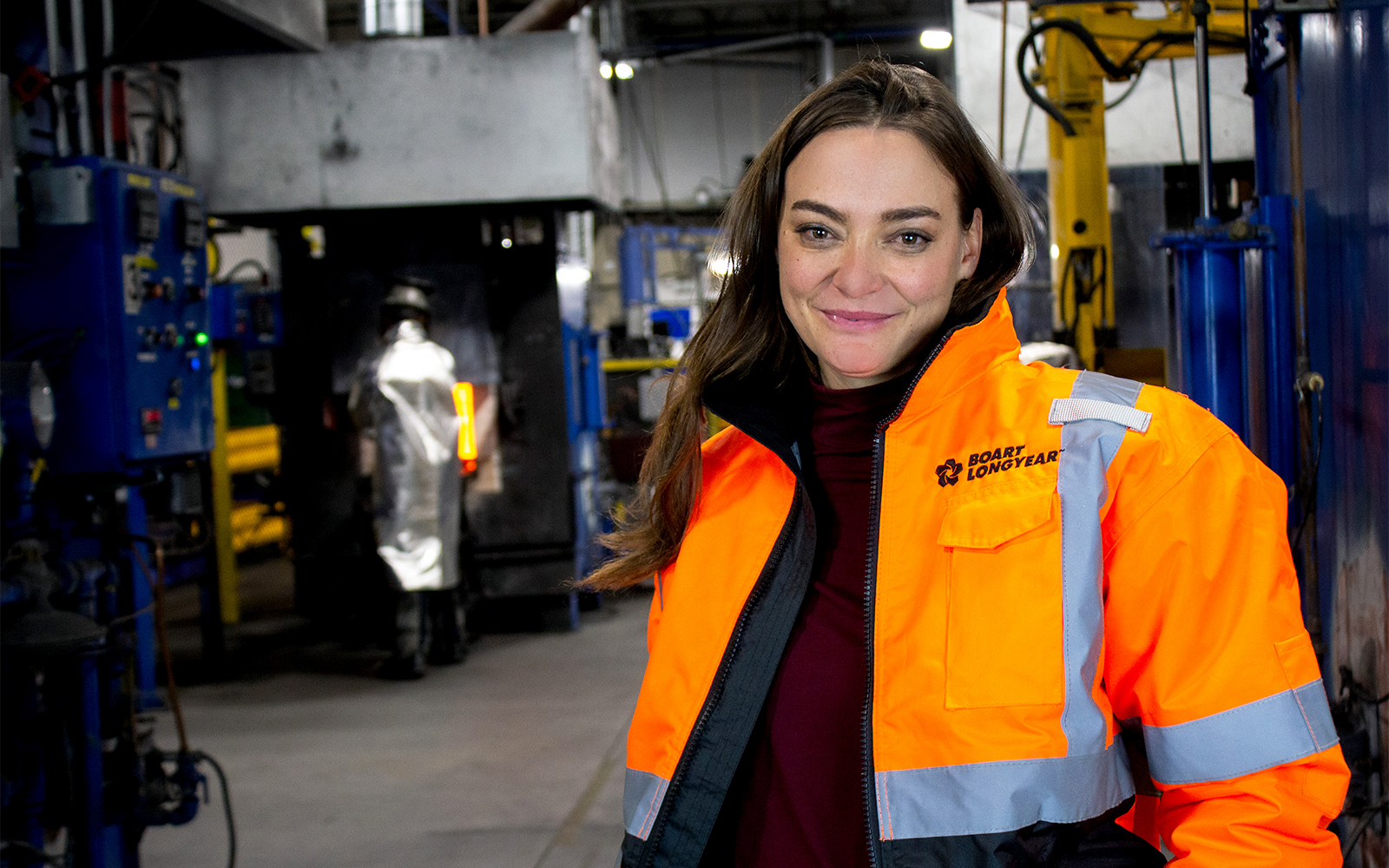|
Getting your Trinity Audio player ready... |
Scrappy—that’s how Nora Pincus describes herself. “Scrappy” is what motivated her to begin college at sixteen. It’s what inspired her vow to become the general counsel of a public company by the time she was forty. And it’s what steeled her initially when she entered the mining industry as a private practice lawyer before transitioning in-house at mining services and products company Boart Longyear as its chief legal officer and general counsel.
In a traditionally male-dominated industry, Pincus often found herself the only woman in the room. The looks she got suggested: What does this young woman know about these high-dollar transactions? Shouldn’t she be a briefcase carrier?
To her clients, though, she was golden. “I always had support from clients who saw how hard I worked and believed in me,” she said. “They saw something in me and were willing to let me run first chair on large transactions that would typically be staffed by an older man. But, I’ve always felt I had to work harder, and be tougher, to prove myself to opposing counsel and show I was someone you need to take seriously.”
Most recently, Pincus’s scrappiness compelled her to announce she would be leaving Boart after what she calls “an extraordinary sixteen months.” She’s going out on a high note of unprecedented achievement as part of the team that successfully recapitalized the 131-year-old company and put it on solid financial footing for its next century.
There was little in Pincus’s background that indicated she would become a lawyer and carve herself a niche in the mining industry. She grew up in Montana, the daughter of transplanted East Coasters. Her father is a professor, and her mother largely raised her children while also running a public access PBS station and was a script supervisor for commercials and a couple feature films.

As for Pincus, she did not take to high school. “I just didn’t want to be a child anymore,” she says. She earned her GED and attended Montana State University at the age of sixteen. It was at college, she says, that she began to think about pursuing a career in law. She was influenced in part by an internship and eventual part-time role with the American Civil Liberties Union. “The concept of fundamental fairness, justice, and serving the underserved were always important to me,” she says.
Her original inclination was to be a criminal defense lawyer, but a summer internship with a district court was enough to make her realize that it was not for her. “What I do now is very different than what I thought I would do when I went to law school,” she says with a laugh.
Boart was Pincus’s first in-house position, a professional progression that she pursued. She cites Rebecca Watson, with whom she worked on her first post-clerkship job, as a mentor. “She taught me that ambition is a positive thing and not something to be ashamed of,” Pincus says. “Many women in the workplace don’t lean into that in the same way men do. It’s OK to set goals that feel huge.”
“Ambition is a positive thing and not something to be ashamed of. It’s OK to set goals that feel huge.”
Nora Pincus
Which is what led Pincus to move in-house. “I was a partner in a couple of law firms doing transactional work in the mining space,” she says. “I had achieved the things I wanted to do in a law firm. All in-house jobs are not created equal, though. Not all are as interesting as Boart.
“The mining industry is very global. I liked that aspect of it,” she continues. “Plus, mining is a capital-intensive industry, and I knew I wanted to work on the big stuff. Big deals are more fun.”
At Boart, she worked on the biggest deal in the company’s more than century-old history: the equitization of almost billion dollars in debt—roughly 98.5 percent of the company—so that Boart could survive. It was a complicated transaction, “one of those where you live and die by outside counsel,” Pincus explains. It involved a least twenty-five law firms, seven of which worked on behalf of Boart, and seven financial advisors.
“Everyone wanted to get the same results,” she says. “Boart’s creditors have a lot of faith in the company. While it was not able to service its debt, they saw a bright future for the company and doubled down with us. It was a completely consensual transaction.”
Today, Boart is active in thirty countries. The company moved its corporate domicile from Australia to Canada, but it is still headquartered in Salt Lake City.
What’s next for Pincus? After taking a few months off at the end of 2021 to “see friends and family, ride my bike, read books, ski powder, and, in the middle of all that, sit still for a moment.” Pincus also recently started as a managing partner at Nebari Holdings, a mining-centric private capital firm.
“It’s an incredibly exciting time in the mining industry as we make the switch to clean metals,” she explains. “I’m thrilled to be involved in the energy transition as we help bring capital to the companies building the infrastructure of the future.”
Nora Pincus is a valuable partner to her business colleagues and to the company as it embarks on strategic changes. Nora offers practical and proactive advice, informed by deep legal expertise. As a full-service law firm with experience across multiple industries, Vinson & Elkins supports clients in anticipating, evaluating, mitigating, and preventing legal, regulatory, and compliance risks as they strive to achieve their strategic business goals.
Congratulations Nora Pincus and Boart Longyear Group Ltd. for the well-deserved recognition you are receiving following your successful restructuring and continuance to Canada. Fasken is proud of its longstanding relationship with Boart Longyear and looks forward to continuing to act as your legal advisors in Canada.

